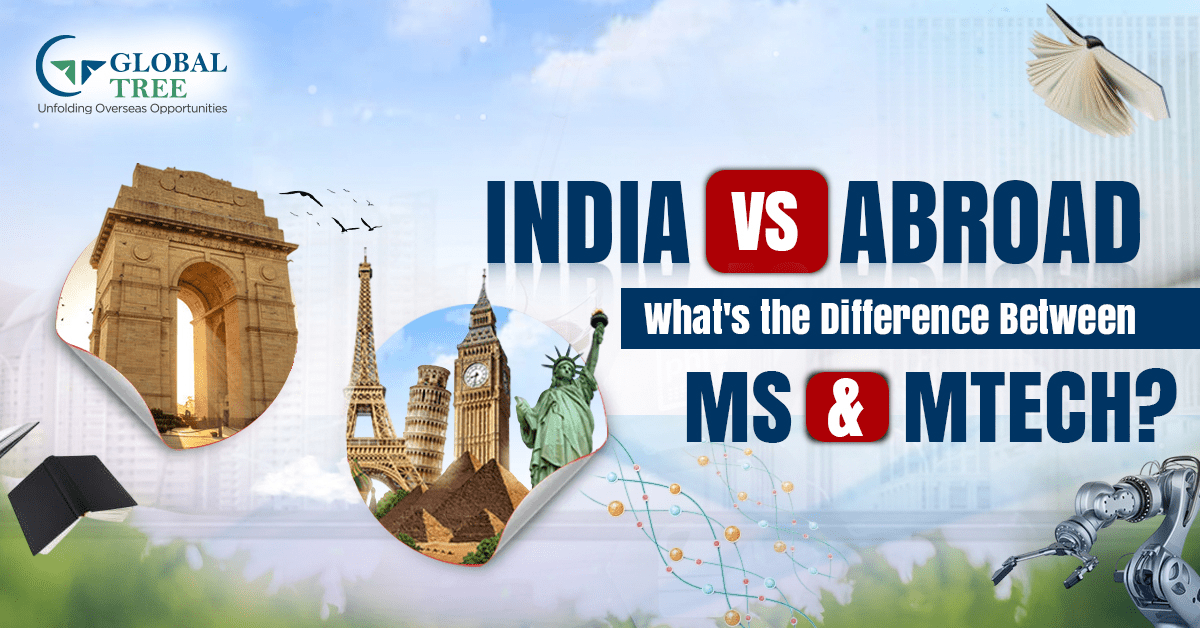France VS Australia: What is an Ideal Study Abroad Destination for you?

- Introduction
- Lady Fran, Bristling with Art and Culture
- 1. Academic Quality and Education at France:
- 2. Cost and Living Expenses if you decide to Stay here:
- 3. Do I need proficiency in French to study in France? How much will language proficiency impact my experience?
- 4. What are the regulations regarding part-time work for international students in France?
- Uncle Auzzie, Begin Lores of Adventure and Passion
- Cost and Living Expenses in Australia:
- Is English proficiency required for studying in Australia, and if so, what are the language requirements?
- What are the regulations regarding part-time work for international students in Australia?
- Are there any specific immigration policies or restrictions for both France and Australia?
Introduction
Bonjour! How’re you going today?
We are here to take you on an immersive journey about the pros and cons of advancing your education with dearest Fran or Uncle Auzzie.
Without wasting precious airtime! Let’s prepare for take-off.
Lady Fran, Bristling with Art and Culture
“You’ve landed at the Charles de Gaulle International Airport, and your next flight is scheduled for Sydney Airport in about 4 minutes of read. Be safe and strapped in till the end”
If you got some free time on your hands, Please go ahead and try the cuisines and cinema à la française! Lady Fran is famous for the work of art and its appreciation.
(Read More: STEM Courses to study in the USA for International students)
But that’s not all. Her diversified acceptance makes it easier for International Students to study in the city of art and dreams.
France is also widely recognised for its quality education and diverse educational institution for higher education and research.
No wonder she is one of the leading non-English speaker’s destination.
1. Academic Quality and Education at France:
Choosing a study destination is a very subjective and individual choice for you. You need to choose an institution that is inclined with your career and majors. As you travel these 10 minutes of hypothetical flight, ask yourself ‘Which country offers stronger programs in my field of study?’
Following institutions are some of the highest ranking in the country of France. Check them out.
- École Normale Supérieure (ENS Paris) - ENS Paris is one of the most prestigious institutions in France, known for its rigorous academic programs and its focus on humanities, sciences, and social sciences.
- Sorbonne University - With a long history dating back to the 12th century, Sorbonne University is highly respected for its humanities, arts, and social sciences programs.
- École Polytechnique - Renowned for its engineering and science programs, École Polytechnique is one of the most selective and best universities in France, often considered on par with top engineering schools worldwide.
- Paris Sciences et Lettres (PSL University) - PSL University is an alliance of several prestigious institutions in Paris, including ENS, Collège de France, and others, known for its multidisciplinary approach to education and research.
- Paris-Saclay University - This University is known for its strong focus on science, engineering, and technology, and it's often ranked highly in global university rankings.
2. Cost and Living Expenses if you decide to Stay here:
The cost of living and study expenses in France can vary depending on factors such as location, lifestyle choices, and the institution you attend. Here's a general overview:
| Aspect | Cost/Expense |
|---|---|
|
Tuition Fees: |
|
|
Undergraduate Programs |
€1,500 to €15,000 per year (Non-EU/EEA/Swiss) |
|
Master's Programs |
€243 to €15,000 per year (Non-EU/EEA/Swiss) |
|
Doctoral Programs |
Often lower or no tuition fees |
|
Cost of Living: |
|
|
Accommodation |
Varies by city; higher in major cities like Paris |
|
Food |
Varies, cooking at home generally cheaper |
|
Transportation |
Relatively affordable, student passes available |
|
Healthcare |
Health insurance required; varies for EU/Non-EU |
|
Other Expenses |
Books, entertainment, personal, travel, etc. |
|
Financial Aid |
Scholarships and aid available from various sources |
3. Do I need proficiency in French to study in France? How much will language proficiency impact my experience?
Whether you need proficiency in French to study in France depends on the language of instruction at your chosen institution and the program you're interested in. Here's a breakdown:
1. Language of Instruction:
- English-Taught Programs: Some universities in France offer programs taught entirely in English, particularly at the graduate level. If you're enrolled in one of these programs, you may not need proficiency in French. However, having some knowledge of French can still be beneficial for daily life outside of academics.
- French-Taught Programs: For programs taught in French, you'll typically need to demonstrate proficiency in the language. This can vary depending on the institution and the program. Some universities may require a minimum level of proficiency in French, while others may offer language support or preparatory courses for international students.
2. Impact on Experience:
- Academic Experience: Proficiency in French can significantly enhance your academic experience, especially if you're studying in a French-speaking environment. It can help you understand lectures, participate in discussions, and engage more deeply with course materials.
- Social and Cultural Integration: Knowing French can also facilitate social interactions and cultural integration. It allows you to communicate with locals, make friends, and fully immerse yourself in the French way of life.
- Daily Life: Beyond academics, proficiency in French can make daily life easier, from navigating public transportation to shopping at local markets to seeking medical assistance if needed.
While proficiency in French isn't always mandatory, having at least a basic understanding of the language can enrich your experience and open up more opportunities during your time in France. Additionally, many universities offer language courses and resources to help international students improve their French skills.
4. What are the regulations regarding part-time work for international students in France?
| Aspect | Regulation |
|---|---|
|
Work Hours |
|
|
EU/EEA/Swiss Nationals |
No restrictions |
|
Non-EU/EEA/Swiss Nationals |
Up to 20 hours/week during academic year; up to 35 hours/week during breaks and vacations |
|
Work Permit |
|
|
EU/EEA/Swiss Nationals |
Not required |
|
Non-EU/EEA/Swiss Nationals |
Work permit included in student residence permit |
|
Types of Jobs |
Various sectors including retail, hospitality, tutoring, etc. |
|
Taxes and Social Security |
Subject to income tax, exemptions available; may need to contribute to social security |
|
Visa Renewal and Work Rights |
Ensure visa and residence permit remain valid for continued work; options for extending stay for work purposes |
Uncle Auzzie, Begin Lores of Adventure and Passion
“ Attention Please! Flight No. EXP1111 is now preparing for landing at the Sydney Airport, Australia. Please remain seated until the plane is at the gate. Don’t forget to pick up your zeal for adventure. *Radio disconnects* ”
(Read More: How to migrate to the USA from India?)
We have all experienced awe during Dad’s random dinner table lore, Now it’s time you make some for yourself!
Uncle Auz here can help you create that. 7.69 million square kilometres of exploration at your feet. Rent a van and catch sunsets from edge to edge!
Apart from the fun, you get to try fresh seafood, lamingtons, or Tim Tam biscuits.
The Australian Education System is reputed worldwide. Since it is regulated by the government itself, you can expect diligence in the process of your application and safety as an International Student.
You will be thrilled to know that Australia has been ranked at the second-best country in terms of quality of living. So. if you’re thinking about putting down roots after study, this is a sign.
1. Academic Quality and Education at Australia:
As we come close to the end of this journey, Do think upon “Which country aligns better with my long-term career goals and personal aspirations?”
Following institutions are some of the highest ranking in Mighty Australia. Check them out:
- Australian National University (ANU) - Located in Canberra, ANU consistently ranks among the top universities in Australia and the world, particularly in fields like politics, social sciences, and humanities.
- University of Melbourne - Known for its strong research output and diverse academic programs, the University of Melbourne is highly regarded both nationally and internationally.
- University of Sydney - Another prestigious institution, the University of Sydney is renowned for its research excellence across various disciplines and its vibrant campus life.
- University of Queensland (UQ) - UQ is recognized for its strong emphasis on research and innovation, particularly in areas like agriculture, environmental science, and health sciences.
- University of New South Wales (UNSW Sydney) - Particularly renowned for its engineering, business, and law programs, UNSW Sydney is a top choice for many students, both domestic and international.
Cost and Living Expenses in Australia:
The cost of living and study expenses in Australia can vary depending on factors such as location, lifestyle choices, and the institution you attend. Here's a general overview:
| Aspect | Cost/Expense |
|---|---|
|
Tuition Fees: |
|
|
Undergraduate |
AUD $20,000 to $45,000 per year |
|
Postgraduate |
AUD $22,000 to $50,000 per year |
|
Cost of Living: |
|
|
Accommodation |
AUD $400 to $1,500 per month (varies by city and type of accommodation) |
|
Food |
AUD $80 to $200 per week (depending on lifestyle and dining choices) |
|
Transportation |
AUD $30 to $70 per week (public transport costs, varies by location) |
|
Healthcare |
Covered by Overseas Student Health Cover (OSHC), typically AUD $300 to $600 per year |
|
Other Expenses |
AUD $200 to $500 per month (books, entertainment, personal expenses) |
|
Financial Aid |
Scholarships, grants, and part-time work opportunities available |
Is English proficiency required for studying in Australia, and if so, what are the language requirements?
Yes, English proficiency is typically required for studying in Australia, especially for international students. The language requirements vary depending on the institution and the program you're applying to. Here's an overview:
1. English Proficiency Tests:
- Most universities in Australia accept standardized English proficiency tests as evidence of language proficiency. The two most commonly accepted tests in Australia are IELTS and TOEFL:
- IELTS (International English Language Testing System): Many universities require a minimum overall band score of 6.0 to 7.0, with individual band scores not lower than 5.5 to 6.0.
- TOEFL (Test of English as a Foreign Language): Typically, universities require a minimum total score of 79 to 100, with minimum scores in each section (reading, listening, speaking, writing).
- Some universities may also accept other tests such as PTE Academic or Cambridge English exams.
2. Exemptions:
- English proficiency requirements may be waived if:
- English is your native language.
- You have completed previous education in English.
- You have studied and completed a qualification in a country where English is the primary language of instruction.
- You have completed a certain level of English language education or training.
3. English Language Preparation Programs:
If you don't meet the English language requirements for direct entry into your chosen program, many universities offer English language preparation courses or pathway programs. These programs help improve your English language skills to the required level for academic study.
4. Conditional Offers:
In some cases, universities may offer conditional admission to students who meet all the academic requirements but have not yet demonstrated the required level of English proficiency. These students may be required to fulfill additional English language requirements before starting their main program.
It's essential to check the specific English language requirements of the institution and program you're interested in applying to. Additionally, ensure that you meet these requirements well in advance of your intended start date to allow time for any necessary English language preparation or testing.
What are the regulations regarding part-time work for international students in Australia?
| Regulation | Details |
|---|---|
|
Work Hours Limit |
40 hours per fortnight during regular semester or term. Unlimited hours during scheduled breaks. |
|
Work Permit |
Usually granted automatically with student visa. Check visa conditions for work rights. |
|
Type of Work |
Part-time, casual, temporary, voluntary. Must not conflict with study commitments. |
|
Tax File Number (TFN) |
Obtain from the Australian Taxation Office (ATO) for taxation purposes. |
|
Minimum Wage |
Entitled to the national minimum wage rates. |
|
Rights and Protections |
Covered by Australian workplace laws for fair pay, conditions, and safety. |
|
Visa Conditions and Compliance |
Compliance with visa conditions is essential. |
Are there any specific immigration policies or restrictions for both France and Australia?
As an Indian national, there may be specific immigration policies or restrictions that could affect your ability to study or work in Australia and France. Here's an overview of some key considerations for each country:
| Aspect | Australia | France |
|---|---|---|
|
Student Visa |
Student visa (subclass 500) required. Proof of enrollment, financial sufficiency, health insurance, English proficiency needed. |
Long-stay student visa (visa de long séjour pour études) required. Obtain before arrival. |
|
Work Rights |
Part-time work (up to 40 hours/fortnight during studies, unlimited hours during breaks). |
Part-time work (up to 20 hours/week during studies, full-time during breaks). |
|
Post-Study Work Rights |
Temporary Graduate visa (subclass 485) available for post-study work. |
Post-graduation work opportunities through APS (Autorisation Provisoire de Séjour), Talent Passport, etc. |
|
Permanent Residency |
Various pathways available, including skilled migration, employer sponsorship, family sponsorship. |
Pathways include employment, family reunification, investment. |
Lastly, don’t forget to question yourself: What factors, such as proximity to home, cultural affinity, or travel opportunities, are most important to me in choosing a study destination.
This is something we cannot answer for you, but definitely help you gain better knowledge about it!
*Screech* Taxiway Visible
We would like to give you a warm welcome to your next phase of life, where the local time is currently 00:00, & and ready for commencement.
We hope you have enjoyed your Flight with Lady Fran and Uncle Auzzie.
We will be arriving at Terminal “Get on with it”, and for customers with checked luggage, a reminder that our flight number today is the EXP1111.
When we do arrive at the stand, please be careful when opening the overhead lockers, as some excitement during flight may have you walking on air.
Finally, thank you for flying with us, especially our future prosperous beings, and our cardholders of creativity, your loyalty is hugely appreciated.
Have a safe journey!









